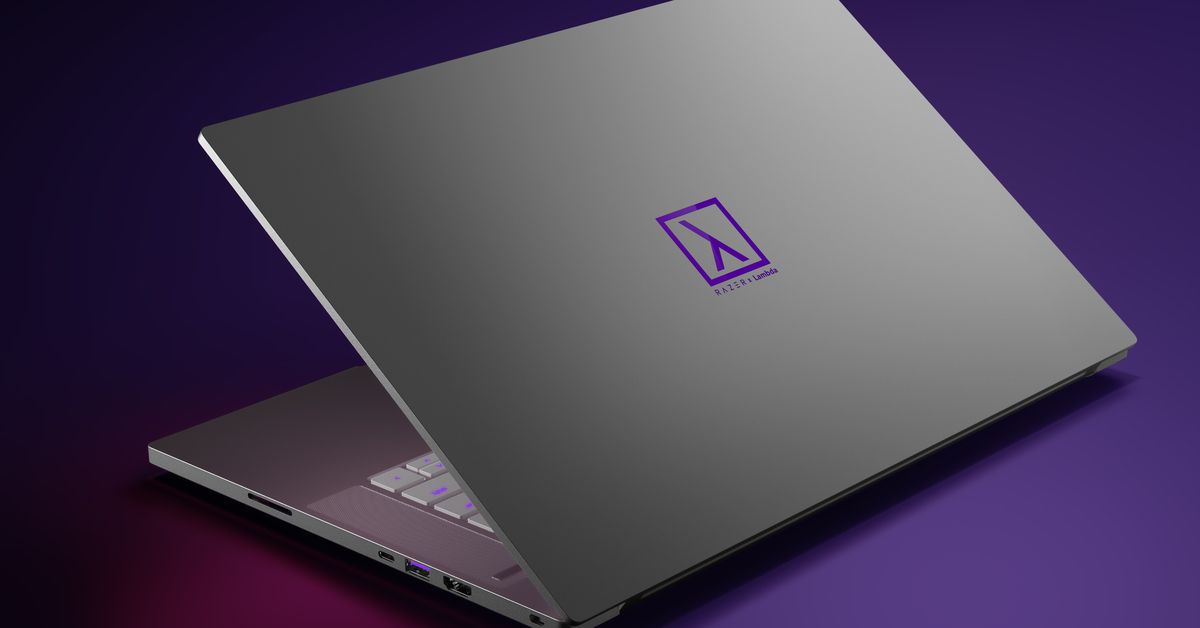Razer’s first Linux laptop is here, but it’s not for gamers
It’s been a decade since Razer shipped its first Blade laptop, and they’ve all come with Windows. That isn’t quite changing today — but a company called Lambda is now putting Ubuntu on a souped-up version of last year’s Razer Blade 15 Advanced with Razer’s full blessing, with the aim of selling it to machine learning and artificial intelligence researchers.
It’s called the Razer x Lambda Tensorbook, and the $3,500 machine is absolutely identical to a high-end version of last year’s laptop in most ways. It’s got an 11th-gen Intel Core i7 CPU, Nvidia RTX 3080 Max-Q graphics and 64GB of RAM underneath a 15.6-inch 165Hz 1440p display, all powered by a 80Wh battery inside an identically sized and shaped 4.45-pound chassis. It’s also got the same speedy I/O, including two Thunderbolt 4 ports, three USB 3.2 Gen 2 Type-A ports, a UHS-III SD card reader and both Wi-Fi 6E and Bluetooth 5.2.
But the Tensorbook is silver instead of black, and comes preinstalled with “the latest drivers and machine learning tools including PyTorch, Tensorflow, CUDA, and cuDNN,” its own warranty and — if you pay $4,099 and up — its own premium support team. Lambda says it provides hardware to thousands of research groups already, selling GPUs, servers, and desktop workstations.
:no_upscale()/cdn.vox-cdn.com/uploads/chorus_asset/file/23390952/stack1.png)
While Razer currently offers faster CPU, GPU and screens in today’s Blade lineup, it’s not necessarily a bad deal if you love the design, considering how pricey Razer’s laptops can be. But we’ve generally found that Razer’s thin machines run quite hot in our reviews, and the Blade in question was no exception even with a quarter of the memory and a less powerful RTX 3060 GPU. Lambda’s FAQ page does not address heat as of today.
Lambda is clearly aiming this one at prospective MacBook Pro buyers, and I don’t just say that because of the silver tones. The primary hardware comparison the company touts is a 4x speedup over Apple’s M1 Max in a 16-inch MacBook Pro when running TensorFlow.
Razer has teased better Linux support over the years, but popular Linux computing news site Phoronix wrote in 2019 that those plans had seemingly been mothballed. Perhaps the recently renewed interest in Linux gaming, driven by the Steam Deck, will push Razer to consider Linux for its own core products as well.
For all the latest Technology News Click Here

